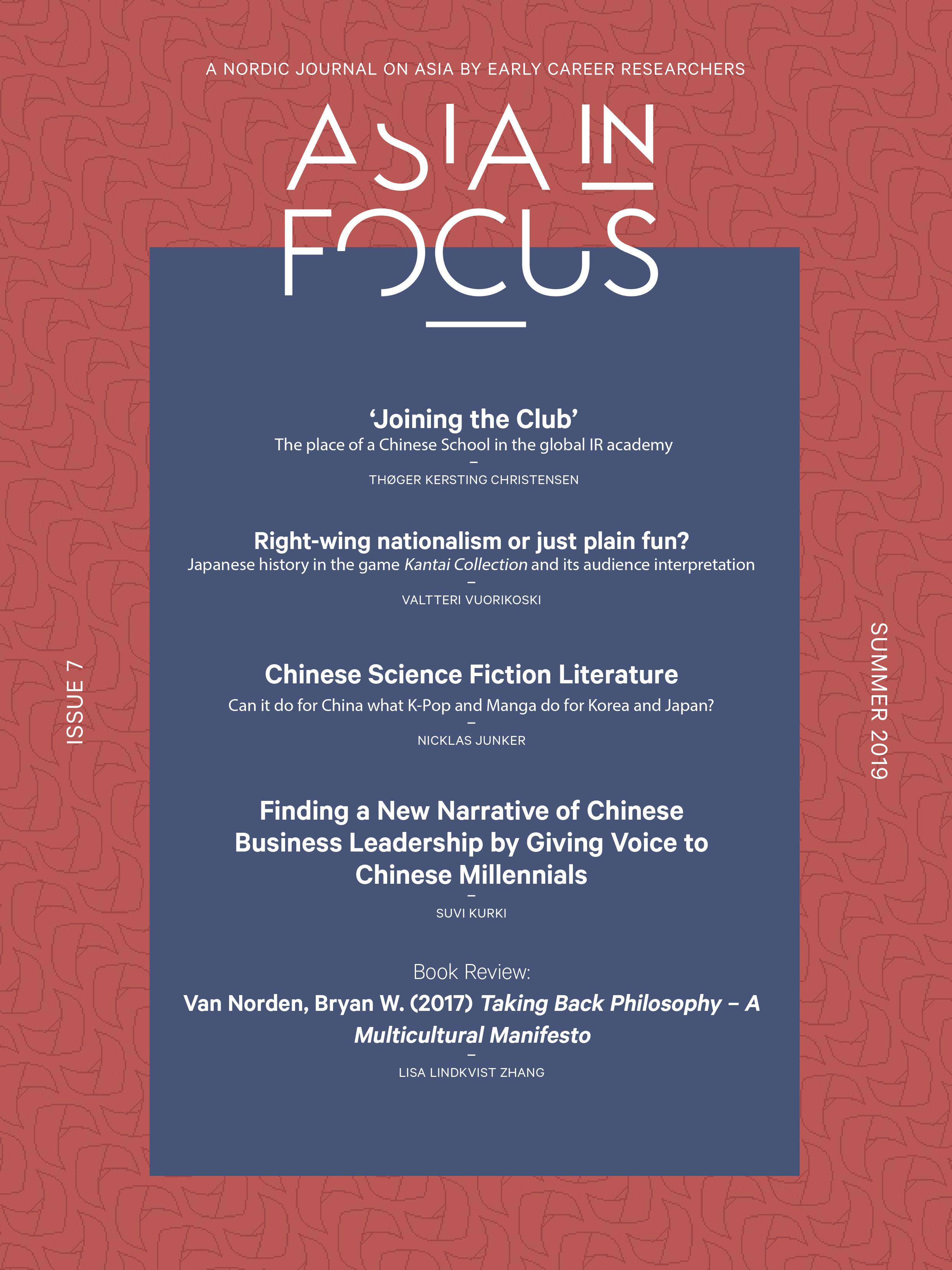‘Joining the Club’
The place of a Chinese School in the global IR academy
Keywords:
Western-centricism, Chinese School, global international relations, dialectics, international relationsAbstract
Since the 1970s, international relations (IR) as a discipline has been called an ‘American social science’. However, despite persistent criticism, Western-centrism still permeates the discipline today. In response, Chinese scholars are debating whether to create a Chinese IR theory, most recently in the form of a ‘Chinese School of IR’. This article focuses on the three main scholars in the debate – Qin Yaqing, Yan Xuetong and Zhao Tingyang – and their theories. Through a bibliometric study of IR periodicals published by Chinese institutions, the paper seeks to measure the influence of the new theories domestically and the Chinese School’s position in the global structure of IR knowledge production. Finally, it critically evaluates the theories’ relationship to existing Western-centric IR theory. All of this is done in order to assess whether Chinese IR theory can be considered a paradigm-shifting phenomenon. The article finds that Western-centric IR – both from an institutional and ideational perspective – continues to dominate the discipline. Furthermore, creating national schools in response to Western hegemony runs the risk of reproducing the problematic tropes of mainstream IR. China’s growing role in the world, its cultural and intellectual tradition, and its sheer proportion of the world population all speak in favour of its potential to emancipate global IR. However, in striving for a truly global discipline, scholars will need to adopt a critical stand against existing IR theory and seek a broader interpretation of what constitutes China.
Downloads
Published
How to Cite
Issue
Section
License
Copyright of the authors and NIAS - Nordic Institute of Asian Studies. All rights reserved. No part of this publication may be reproduced without the written permission from the authors.


